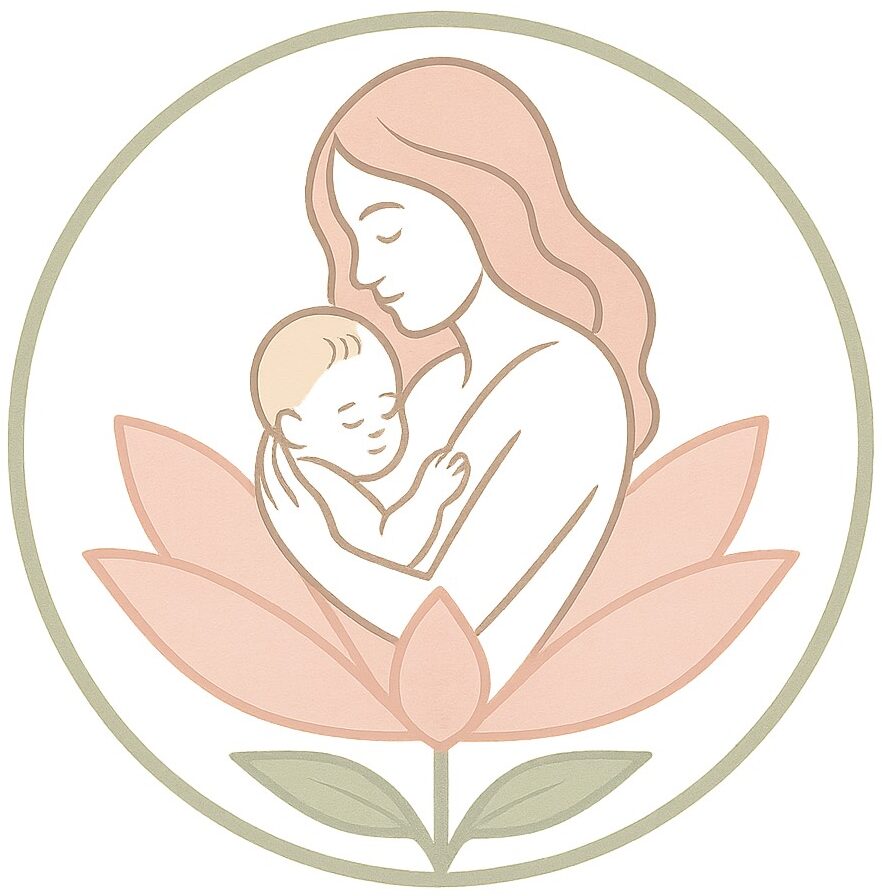Motherhood Identity Crisis: 5 Steps to Redefine Yourself
Read Time: 8 Minutes
The moment you looked into your baby’s eyes, a piece of you changed forever. It was a beautiful, profound shift. But somewhere in the exhaustion and endless demands, you looked in the mirror and asked: “Who am I now?”
If the woman you were before your baby feels like a stranger, if you feel lost, guilty, or disconnected from your own life, you are not failing. You are experiencing what we call the Motherhood Identity Crisis—a natural, unavoidable, and often isolating transformation that is rarely discussed.
This isn’t just about needing more self-care; it’s about a deep psychological and emotional restructuring. You are experiencing your “Second Birth.”
In this comprehensive guide, we will validate your feelings, help you understand why this identity shift occurs, and give you five compassionate, actionable steps to move from feeling lost to confidently redefining yourself in this powerful new chapter.
I. This Is a Transformation, Not a Failure
The pressure to “bounce back” after birth applies not only to your body, but to your identity. Yet, the old you is simply gone and that is okay. She completed her purpose.
The journey you are on has a name: Matrescence.
Matrescence is the profound process of becoming a mother [External Link: Reputable Source on matrescence]. This concept, often described as an identity shift akin to adolescence, involves biological, social, and psychological changes that reshape who you are. This is why you feel so profoundly changed; it is biological, not a weakness.
The crisis begins when you try to force the new you to fit into the structures and expectations of the old you.
Common Signs You Are Experiencing Identity Crisis in Motherhood
When you are losing identity in motherhood, the feelings often manifest in confusing ways. You might feel joy and overwhelming sadness simultaneously.
Look for these key indicators:
• The Loss of “Me” Time: You struggle to identify a single hobby or interest you still enjoy that doesn’t involve your children.
• Relational Confusion: You find yourself disconnected from your partner, or your friendships feel strained because you no longer know how to relate to the world outside of parenting.
• The “Mother-Only” Label: When asked to describe yourself, you only list things related to your role as a parent.
• Intense Guilt: You feel profound guilt anytime you prioritize your own needs. If you are struggling with this, read our post on How to Deal with Mom Guilt [Internal Link: Mom Guilt Blog Post].
• Mourning the Past: You spend significant mental energy wishing for your pre-baby spontaneity and freedom.
A Note on Safety: If these feelings progress to persistent sadness, hopelessness, fear, or an inability to function, please know that you may be experiencing a more serious mood disorder. Understand the difference between Baby Blues vs Postpartum Anxiety [ Postpartum Anxiety vs Baby Blues: Know the Signs, Get the Right Support], and please seek professional medical and psychological help immediately. You can find screening resources at Postpartum Support International [External Link: https://postpartum.net/get-help/(PSI) or NAMI].
II. The 5 Compassionate Steps to Redefining Yourself
The work of healing and redefining yourself requires intentionality. It is about integrating the woman you were with the mother you are, to create the powerful woman you are meant to be now.
Here are the five key steps we use in our coaching sessions to help you find your voice again.
1. Separate the Role from the Person (The “Mother” vs. The “You”)
The first step in healing is acknowledging that “Mother” is a role you play, not your entire identity. When you allow the role to consume the person, you disappear.
To begin this separation, try the Three-Column Journal Exercise:
1. Column 1: The Old Me: List 5 things you were before baby (e.g., dedicated runner, organized friend, lover of silent reading).
2. Column 2: The Mother Role: List 5 things that are non-negotiable aspects of parenting (e.g., bedtime routine, meal prep, school drop-off).
3. Column 3: The New Me (Values Today): Identify 5 core values that define who you are now (e.g., patient, curious, creative, committed to growth, kind).
• The Actionable Tip: Focus only on Column 3. These values are the bedrock of your New Me. When you make decisions, ask: “Does this align with my value of being creative or patient?”
2. Implement the 15-Minute Re-Entry Plan
When you feel you’ve lost identity in motherhood, the idea of finding three hours for a hobby is overwhelming and unrealistic. The secret is consistency, not length.
The 15-Minute Re-Entry Plan is about micro-moments of intentional separation from the mother role.
• 15 Minutes, 3 Times a Week: Choose one non-motherhood activity that reignites a sense of self. This must be something that makes you feel like you before you return to duty.
• Example Activities: Listening to a full podcast episode with headphones in, reading a chapter of a non-parenting book, or sketching in a notebook.
• The Actionable Tip: You must communicate this 15-minute block to your partner or support system: “This is my Re-Entry Time. Please do not interrupt unless it’s a true emergency.” Guard this time fiercely.
3. Embrace the “AND” Instead of the “OR”
Many ambitious or passionate women feel they have to choose: Mother OR Career. Mother OR Friendship. Mother OR Self-Care. This binary thinking, born from societal pressure, fuels the identity crisis.
You can be a devoted mother AND an evolving professional. You can be present with your child AND make time for self-directed personal growth.
• The Actionable Tip: Catch yourself whenever you use the word “OR.” Rephrase the thought. For instance, if you think, “I can’t launch my business OR be a good mom,” rephrase it: “I can launch my business AND be a present mom by setting strict boundaries on my work hours.”
• This simple reframing helps you move out of victimhood and into creative solution-finding.
4. Communicate Your New Boundaries and Needs
A key element of healing your identity is re-establishing boundaries, especially within your relationship. Your partner cannot support the “New You” if they are only catering to the needs of the “Mother Role.”
You must define and communicate your Emotional Non-Negotiable, the things you need to feel like an autonomous person. For more guidance on healthy communication, look at expert relationship resources https://www.gottman.com/couples/ Resource.
• Step 1: Define the Non-Negotiable: “I need two hours on Sunday morning completely alone for my own thought space.”
• Step 2: Communicate the Why: Instead of saying, “I need a break,” say, “I need this time to reconnect with my identity so I can show up as a calmer, more available mother and partner for you.”
• The Actionable Tip: Avoid vague complaints. Use “I” statements to share your emotional reality without placing blame. This invites your partner to join you in the process of finding yourself after baby, rather than feeling criticized.
5. Stop Searching for “The Old You”
The final, and perhaps hardest, step is acceptance. You are not going back to the way things were. The woman who birthed and raised your child is inherently different—she is wiser, stronger, more compassionate, and has a capacity for love she didn’t possess before.
The crisis often persists because we are mourning the death of the pre-baby self. But what if that death was necessary for a better, more whole self to emerge?
• Focus on Integration: Start thinking about “The Second Birth.” This is the moment you stop comparing your present reality to your past fantasy. You are now integrating the lessons of motherhood into your core being.
• The Actionable Tip: When you feel pangs of sadness for the past, gently redirect your mind to three qualities you possess now that you didn’t have before becoming a mother (e.g., resilience, emotional depth, patience). Celebrate the new woman you have become.
III. You Don’t Have to Do This Alone
Navigating a motherhood identity crisis is some of the most profound inner work a woman can ever do. It requires patience, compassion, and often, a dedicated guide to hold the space for you.
You are not just surviving; you are transforming. This second birth is your chance to step into a motherhood that honors you as well as your family.
If you are tired of feeling lost and are ready to be supported with compassion, clarity, and care through this profound transition, you don’t have to carry this burden in isolation.
If you are feeling overwhelmed and need a space to be held, heard, and whole, let’s talk. Book a Session, a confidential discovery session with me today to discuss how personalised Motherhood Identity Coaching can guide your transformation.


